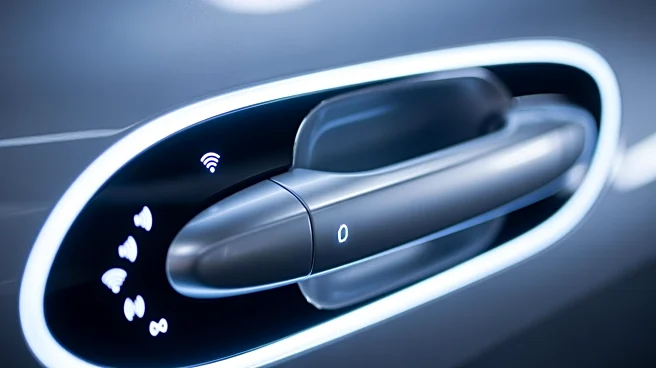What is the story about?
What's Happening?
Jaguar Land Rover (JLR), a subsidiary of Tata Motors, experienced a significant IT security breach attributed to the ransomware group Hellcat, resulting in the theft of 350 GB of sensitive data. This incident disrupted global operations, including car registrations and dealer bookings. The breach follows a similar incident earlier in the year, highlighting vulnerabilities in the automotive sector's digital ecosystems. Financially, JLR's EBIT is projected to decline due to U.S. tariffs and the cyber incident, impacting Tata Motors' profitability.
Why It's Important?
The recurring cybersecurity breaches in the automotive industry underscore the critical need for robust security measures. As manufacturers increasingly rely on digital systems, the risk of cyberattacks poses significant operational and financial challenges. The automotive sector's response includes increased cybersecurity spending and regulatory compliance, with the market projected to grow substantially. These developments highlight the importance of proactive security strategies to protect sensitive data and maintain consumer trust.
Beyond the Headlines
The JLR incident serves as a cautionary tale for the automotive industry, emphasizing the systemic risks associated with interconnected systems. Companies that fail to prioritize cybersecurity risk financial losses, regulatory penalties, and damage to consumer trust. As the industry transitions to software-defined vehicles, the cost of inaction will rise, necessitating comprehensive security frameworks and governance.
















